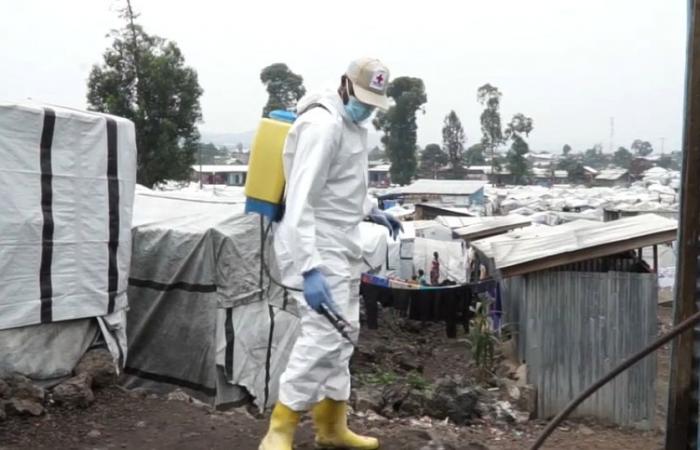The Mpox virus continues to affect central and eastern Africa, with the Democratic Republic of Congo (DRC) being the epicenter, with more than 13,000 cases and 450 deaths.
Other countries, such as Cameroon, Burundi and Uganda, are also recording new cases. Despite efforts to stem the spread, limited testing capacity and overwhelmed health systems make containment difficult.
In August 2024, the World Health Organization declared Mpox a public health emergency, due to the increasing number of cases, operational challenges, and the urgent need for a coordinated response to stop the spread of the disease .
“Smallpox has been reported in the Democratic Republic of Congo for over a decade, and the number of cases reported each year has continued to increase during this time. Last year, reported cases increased significantly and the number of cases reported since the start of the year has already exceeded last year’s total, with more than 14,000 cases and 524 deaths,” said Tedros Adhanom Ghebreyesus, director-general of the World Health Organization.
Symptoms of smallpox include fever, swollen lymph nodes, and a rash that usually starts on the face and spreads to other parts of the body. Although the disease is often mild, it can cause serious complications, especially in people with weakened immune systems. Smallpox can spread through close contact with infected people or animals, making the disease more difficult to control, especially in crowded areas.
“A person is considered infectious from the onset of symptoms until the skin lesions are crusted over, the scabs fall off and there is a new layer of skin. Transmission occurs primarily through large respiratory droplets or direct contact with bodily fluids, skin lesions, or contaminated clothing or bedding,” said Dr. Olivia Kasirye, Sacramento County Public Health Officer.
In Rwanda, the very first outbreak of the Marburg virus caused concern. More than 60 confirmed cases have been reported, with healthcare workers among the worst affected. The mortality rate from Marburg virus is high, making the response of governments and international partners, such as the World Health Organization (WHO), even more urgent.
Nearly 900,000 doses of smallpox vaccine have been distributed across Africa, but health authorities warn it is insufficient. The Africa CDC estimates that more than 10 million doses are needed to control the epidemic. Vaccination campaigns are increasing, with the support of global partners, but significant challenges remain.
As Africa faces both the smallpox and Marburg epidemics, there is a growing need for more investment in testing, surveillance and healthcare infrastructure. Communities on the ground are doing their part, but sustained global support is essential to combat these health crises.






